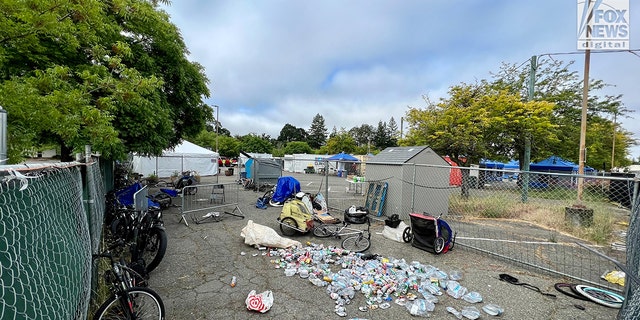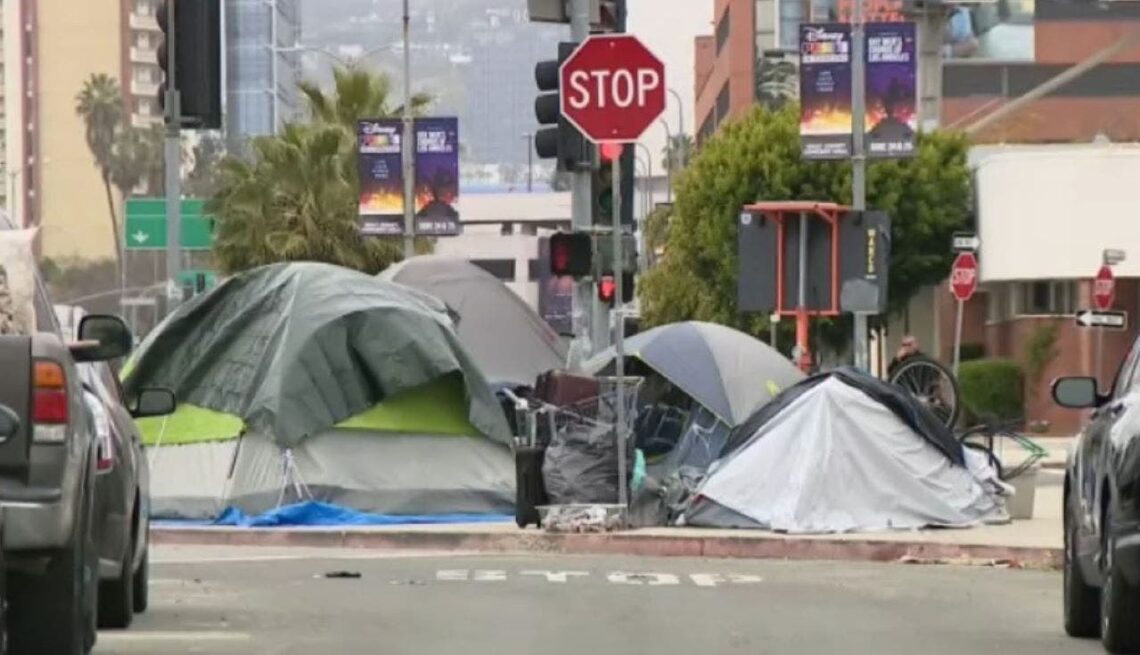The California homeless population accounts for nearly a third of the nation’s homelessness, according to a new report.
The Benioff Homelessness and Housing Initiative (BHHI) at the University of California, San Francisco released what it called the “largest representative study of homelessness in the United States” since the 1990s, which looks at the causes and consequences of homelessness in California.
The study was conducted through nearly 3,200 questionnaires and 365 in depth interviews with adults who are experiencing homelessness in eight regions of California.
Most of the participants revealed that housing was not affordable, reporting a median monthly household income of $960 in the six months before they became homeless, according to the study, and most believed rental subsidies or a one-time financial assistance may have prevented them from becoming homeless.
HOMELESS CRISIS CONTINUES TO SPIKE ACROSS US AS NYC, LA EXPECTED TO BE HARDEST HIT
“The results of the study confirm that far too many Californians experience homelessness because they cannot afford housing,” Margot Kushel, MD, Director, UCSF BHHI and principal investigator of the study said. “Through thousands of survey responses and hundreds of in-depth interviews, the study’s findings reflect the incalculable personal costs of homelessness.”
The study also found the homeless population in California is getting older, with 47% of homeless people being 50 or older, and an overrepresentation of Latino, Black and Native Americans, accounting for 35%, 26% and 12% respectively.
PROPOSAL BANNING HOMELESS ENCAMPMENTS IN SAN DIEGO TO BE CONSIDERED: WE ARE NOT A ‘GIANT TOILET’

Twenty-percent of the people surveyed became unhoused when they got out of an institution, two-thirds reported mental health issues, and 72% had experienced physical violence during their life.
Participants said they were not employed, though nearly half were looking for work.
“As we drive toward addressing the health and…
Read the full article here







